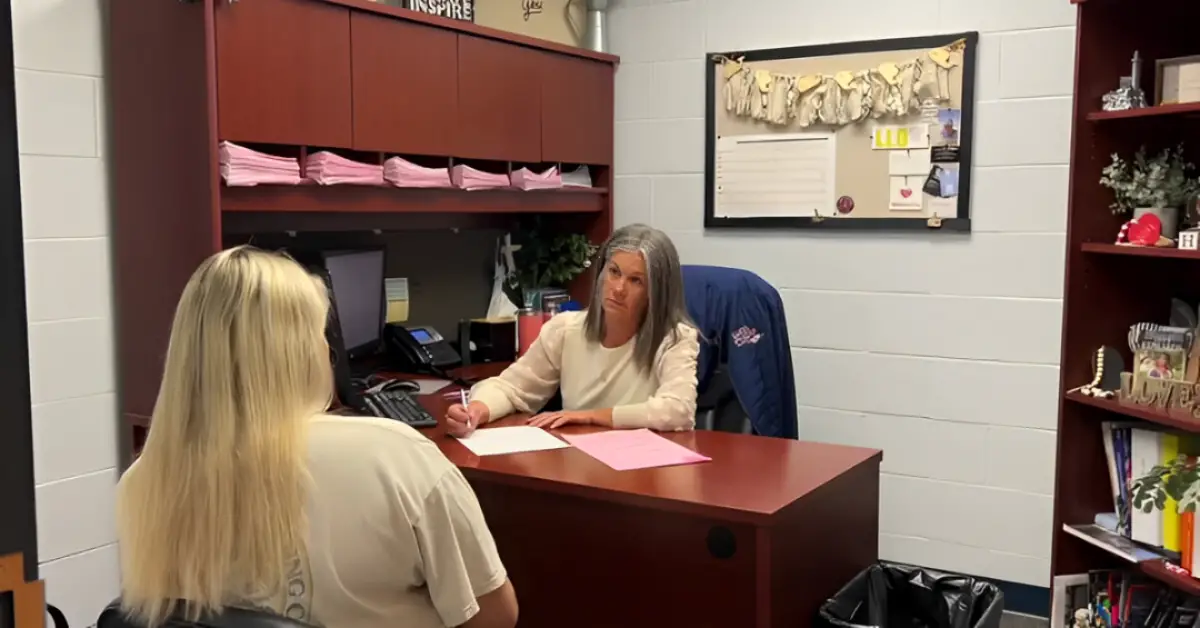Wakulla County Schools have once again shown why they are a standout in Florida’s education system. With a remarkable 97% graduation rate for the past year, the district now ranks third in the state for graduation success.
This achievement is particularly impressive given that it comes after a slight drop from the previous year’s 97.6%. However, this small decrease doesn’t diminish the fact that Wakulla County continues to outperform neighbouring districts like Leon (85%), Gadsden (74%), and Franklin (just under 73%).
The key question on many minds is, “What makes Wakulla’s schools so successful in keeping graduation rates so high?” The answer lies in the hard work and dedication of the teachers, counsellors, administrators, and support staff, who have created a nurturing environment for students to thrive. Let’s dive into the factors contributing to this success.
Jennifer Paterson, a counsellor at Wakulla High School, has been with the district for five years and has seen firsthand the positive impact of personalized attention on students. “It’s a team effort,” she says, explaining the district’s approach to student success.
Her office is filled with neatly organized binders that track the progress of each student. She meets with students frequently to ensure they are on track with their academic goals and well-being.
“What makes our school stand out is the close attention we give to each student,” Paterson explains. “I document everything, so I can stay on top of any students who may need extra help.” It’s this proactive approach to supporting students that has played a critical role in the district’s graduation rate. Paterson’s role goes beyond simply offering academic advice—she ensures that students who may be struggling academically or personally are given the resources and attention they need.
The proactive approach extends beyond the guidance office. Kerry Prosser, Assistant Principal of Instruction at Wakulla High, believes in the power of intervention when students show signs of discouragement.
“If there’s ever a student who feels discouraged or is thinking about dropping out, we take immediate action,” Prosser says. “We meet with the student and their parents to discuss how we can help them stay in school and succeed.”
This hands-on intervention ensures that students are never left to feel isolated or unsupported. Instead, the school becomes a place of encouragement, where relationships are built not only between teachers and students but also between the school and the students’ families. This teamwork and connection are vital in keeping students engaged and motivated to graduate.
“It’s not just about keeping track of grades,” Prosser adds. “It’s about caring for the whole student. It’s about knowing who they are and what they need.” By fostering such close relationships with students, the staff at Wakulla High School has created a school culture where each student feels valued and supported.
The commitment to student success doesn’t end when students walk out of the classroom. The staff at Wakulla High knows that students often face challenges outside of school that can affect their ability to succeed academically. Paterson notes, “Our students face a lot of challenges, whether it’s at home or in the community. We know that, and we work hard to find the resources they need to overcome those challenges.”
One of the key factors in Wakulla County’s success is the consistency of support that students receive throughout their high school years. From 9th grade onwards, students at Wakulla High School meet with counsellors on a regular basis.
These meetings are not just about checking grades—they focus on the student’s overall well-being, academic progress, and even personal challenges that could hinder their success. This ongoing relationship between students and their counsellors builds trust and provides a safety net for students who may be struggling in different areas of their lives.
The school’s efforts don’t stop with the counsellors. Teachers at Wakulla High also play a significant role in the district’s high graduation rate. They collaborate with counsellors and other staff members to ensure that students receive the support they need both inside and outside of the classroom. Teachers don’t just teach—they mentor, encourage, and guide students in ways that go beyond academics.
“We truly believe in a team effort,” says Prosser. “We have teachers, counselors, administrators, and parents all working together to ensure that our students have every opportunity to succeed.” This collective effort is what makes Wakulla High School’s approach to education so effective.

The supportive environment doesn’t just help students graduate—it prepares them for life after school. By receiving consistent mentorship, guidance, and support, Wakulla County students are better equipped to take on the challenges that await them after high school. Whether they go on to college, vocational training, or enter the workforce, the skills and support they receive in high school have a lasting impact.
Even with the challenges many students face, the Wakulla County School District remains dedicated to helping each student succeed. The staff works tirelessly to ensure that no student is left behind. “We understand that life is tough for some of our students, but we’re here to help them through it,” says Paterson. “We work together as a team to make sure that everyone has the chance to graduate.”
This dedication to each student’s success is what continues to set Wakulla County Schools apart from other districts in Florida. The district’s impressive graduation rate is a testament to the hard work, care, and support that the staff provides to students throughout their high school years.
In conclusion, Wakulla County’s third-place ranking in Florida for graduation rates is no accident. It is the result of a school district that values personalized attention, proactive support, and teamwork. By building strong relationships with students and their families, Wakulla County Schools have created a model for success that is not only reflected in their graduation rates but also in the lives of the students they serve.
Disclaimer: This article has been meticulously fact-checked by our team to ensure accuracy and uphold transparency. We strive to deliver trustworthy and dependable content to our readers.




